Maisie Peters: ‘My universe is something for me to destroy and build up again’
Ed Sheeran’s 22-year-old protégé is writing music in the vein of her idol Taylor Swift. Maisie Peters describes her work as existing for dreamers with imaginary boyfriends, the people who live in a fantasy, the ones who don’t quite get what they want. As she gears up to release 'The Good Witch', Peters explains it’s music for overly invested romantic girls like her
By Hannah Ewens
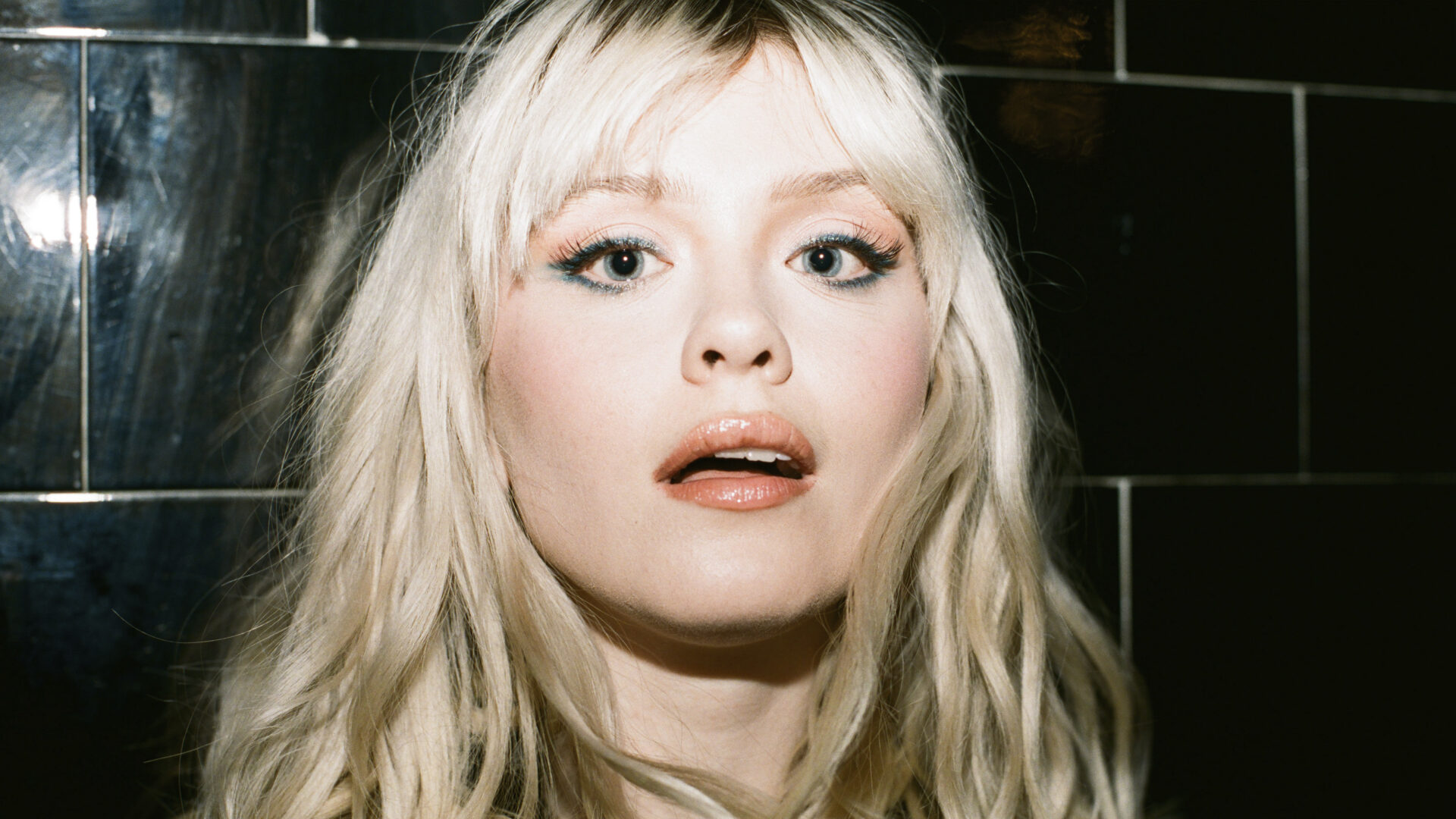
The fairytale dies hard for a certain type of woman. We feel helpless against the pull of limerence; those days when the object of our affections only knows our outline, or maybe doesn’t know us yet at all. Even when we’re in a relationship, it takes concerted effort to stop colouring that person in as we want to see them; someone kinder, faithful, more able to meet our needs. If you’re a bonafide romantic who will follow gentle delusion to its injurious end when it means you’re allowed to spend extra months, years, or much of a life in situations charged with the emotionally significant, you’ll recognise the impulse to diagnose this as unhealthy and do it anyway.
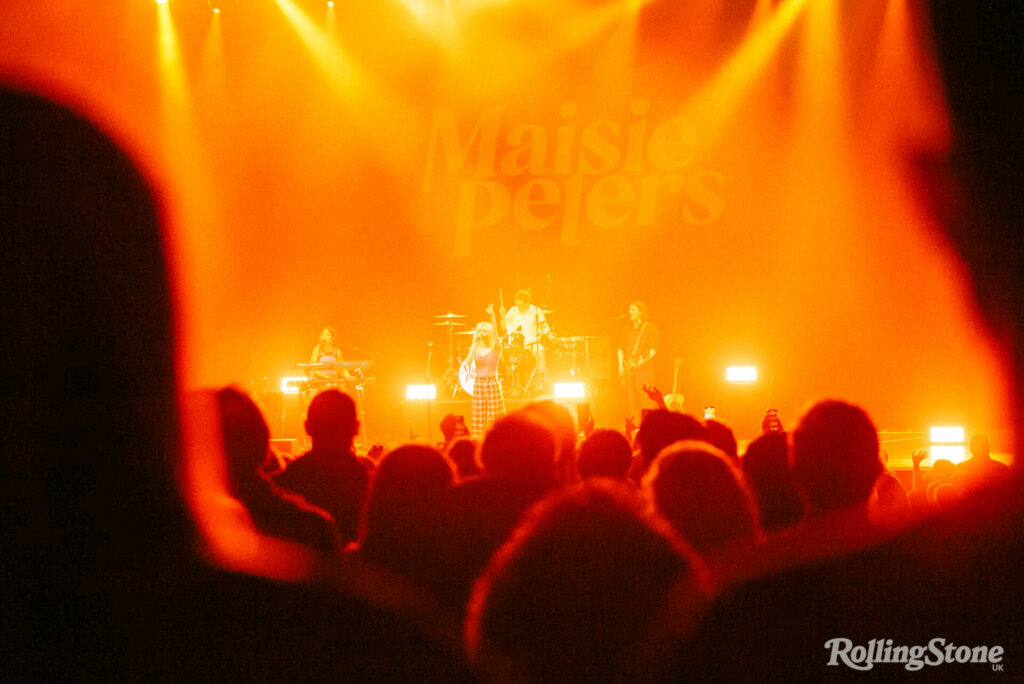
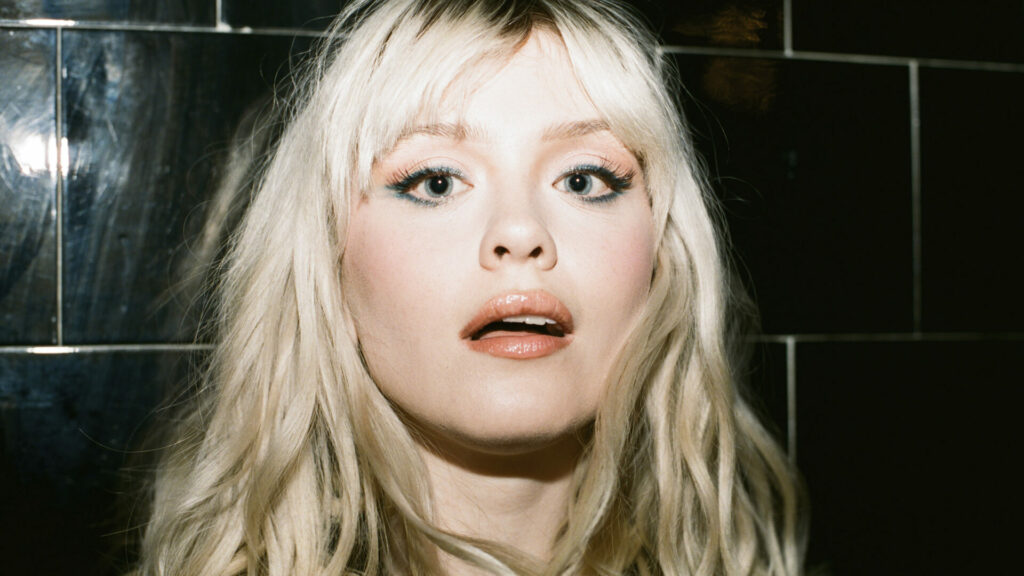
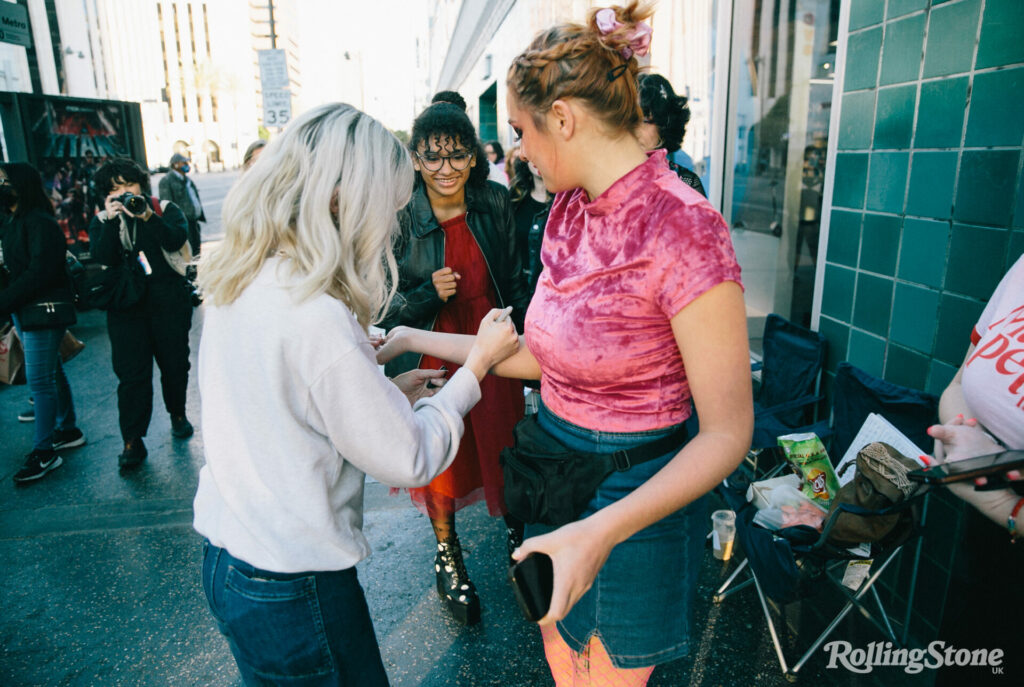
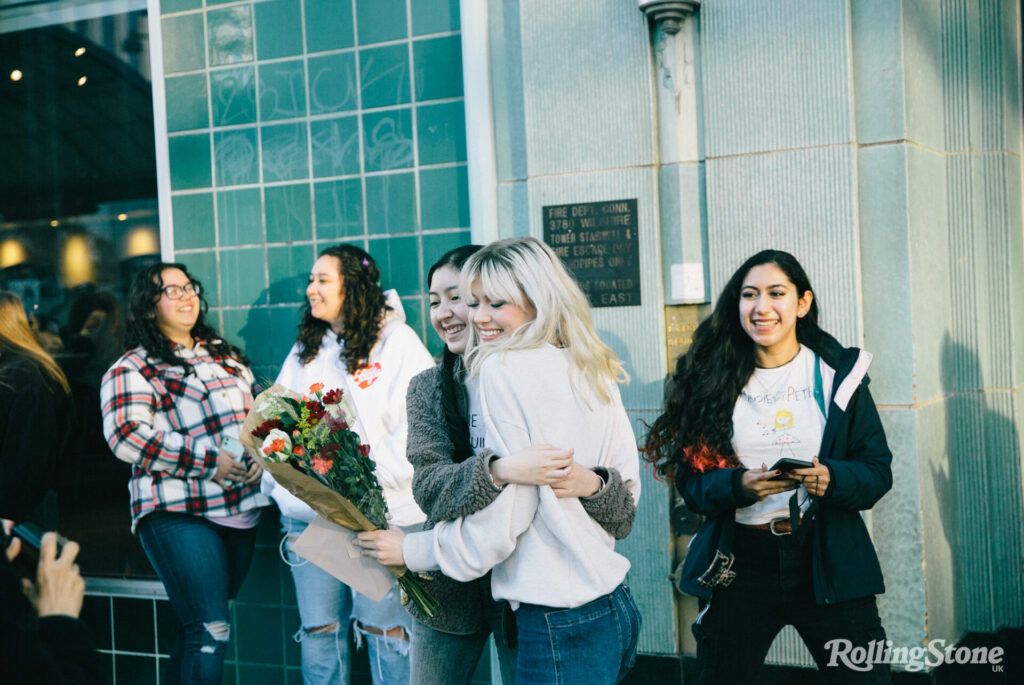
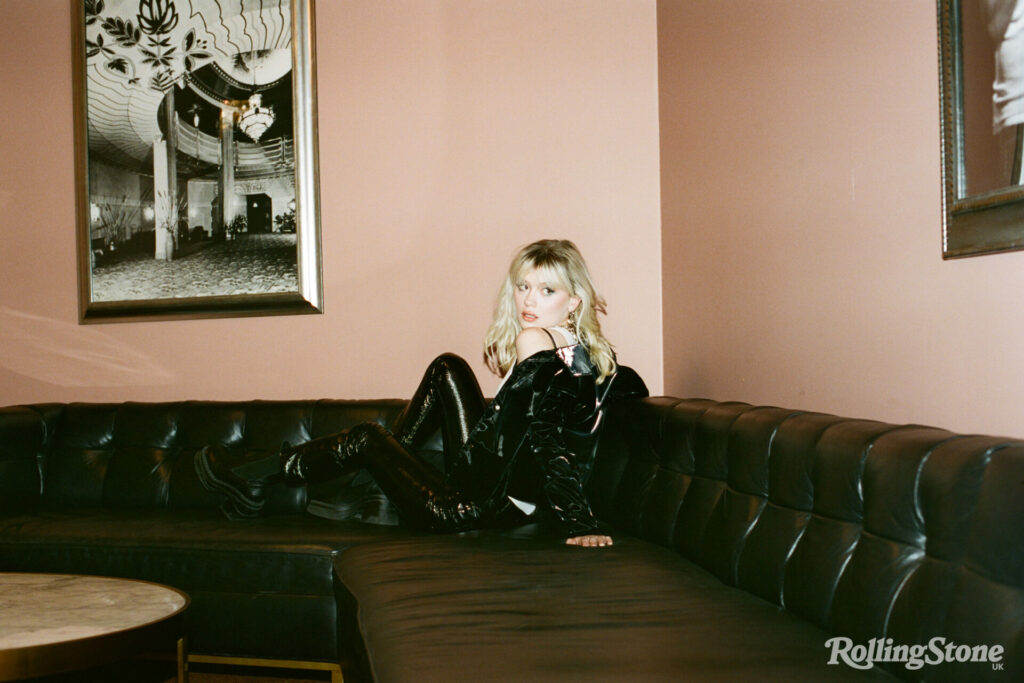
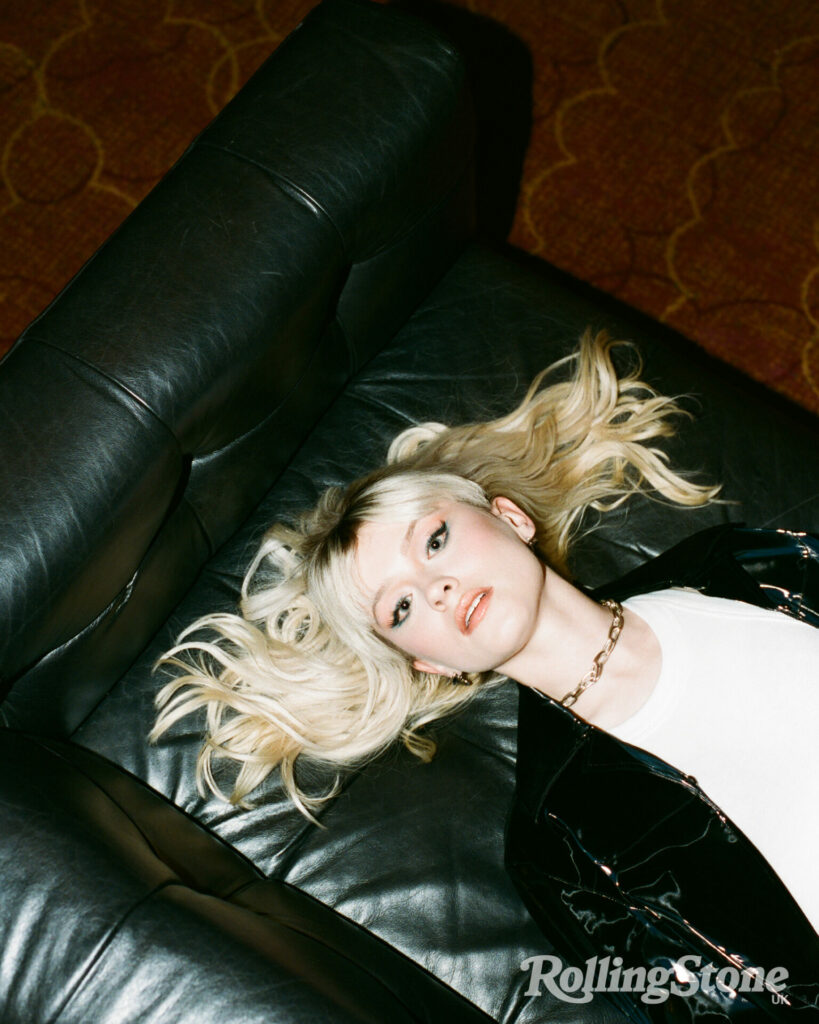
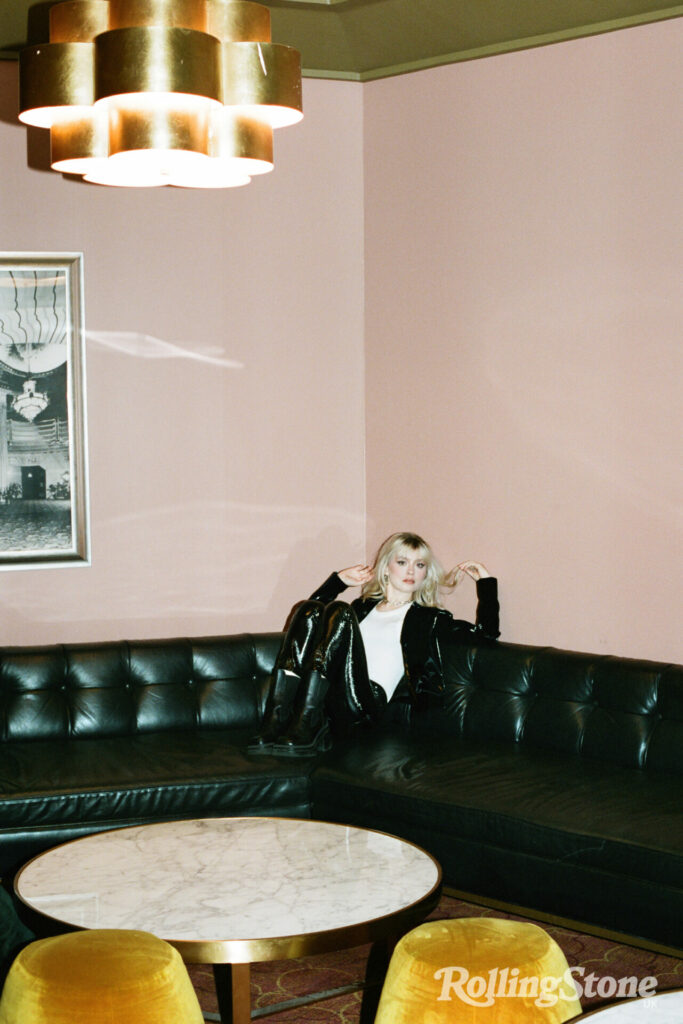
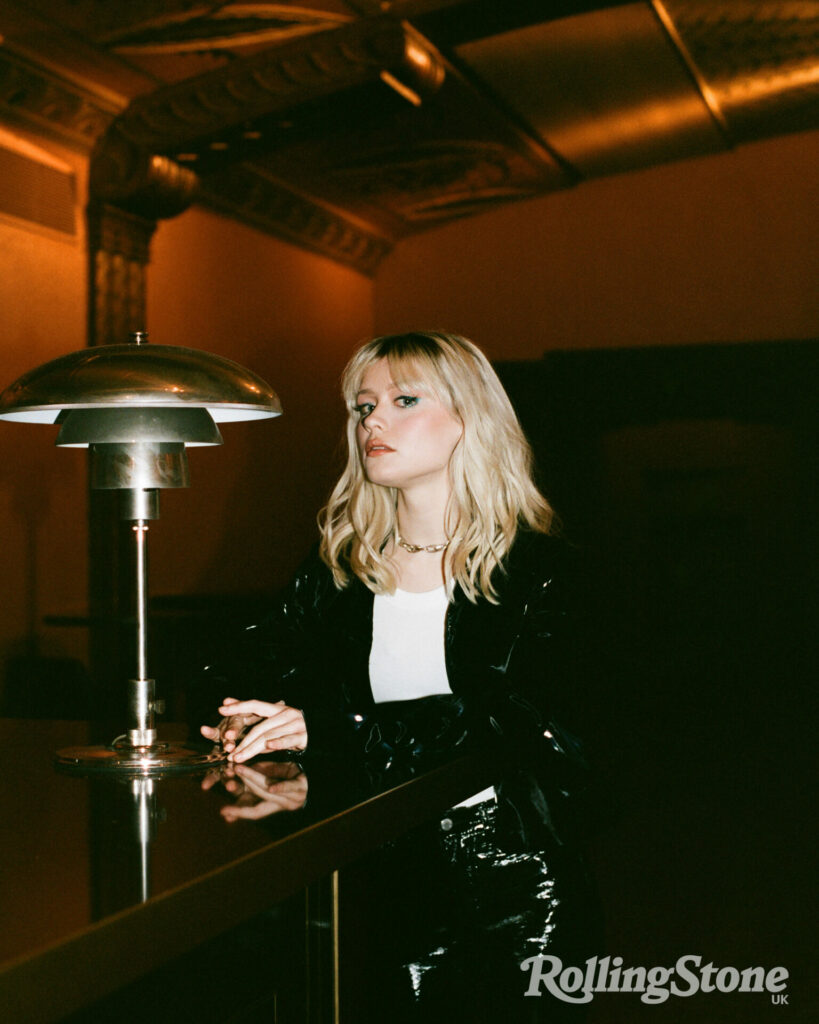
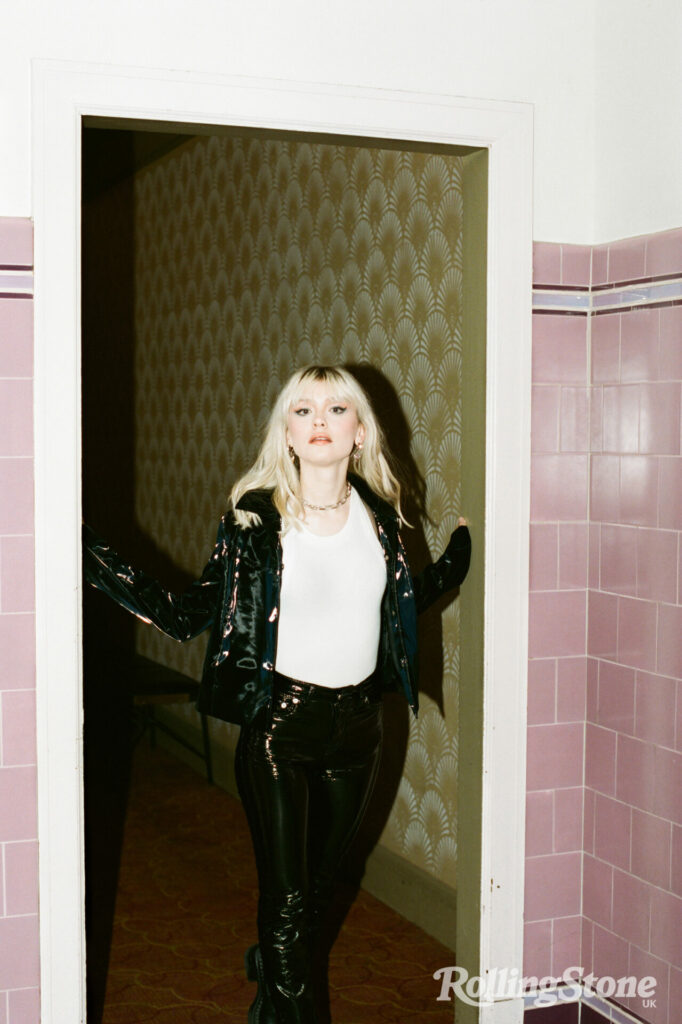
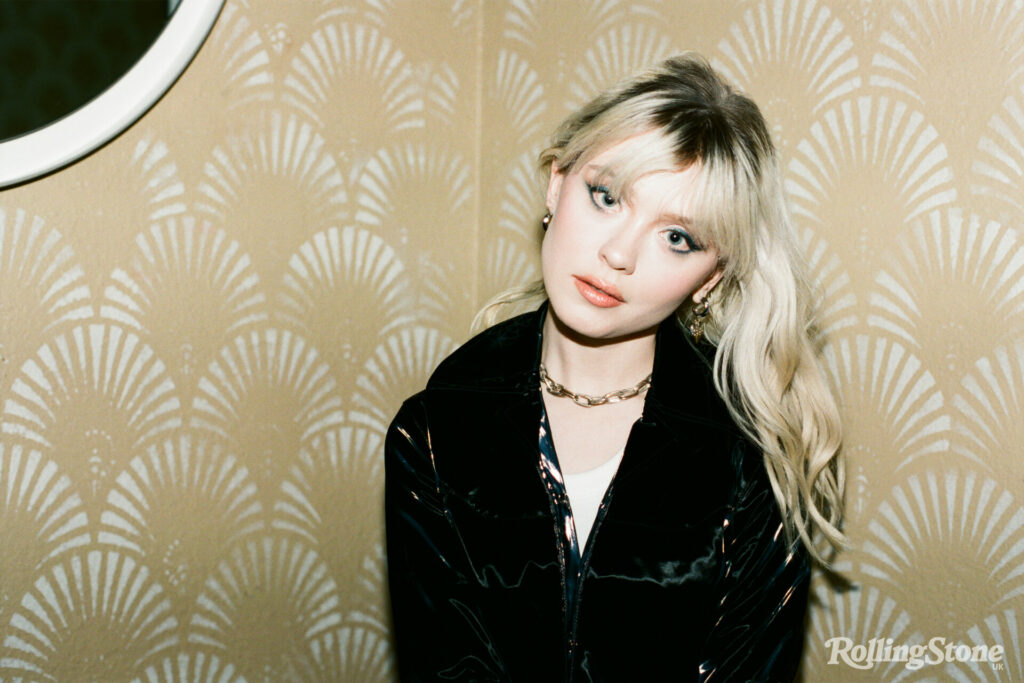
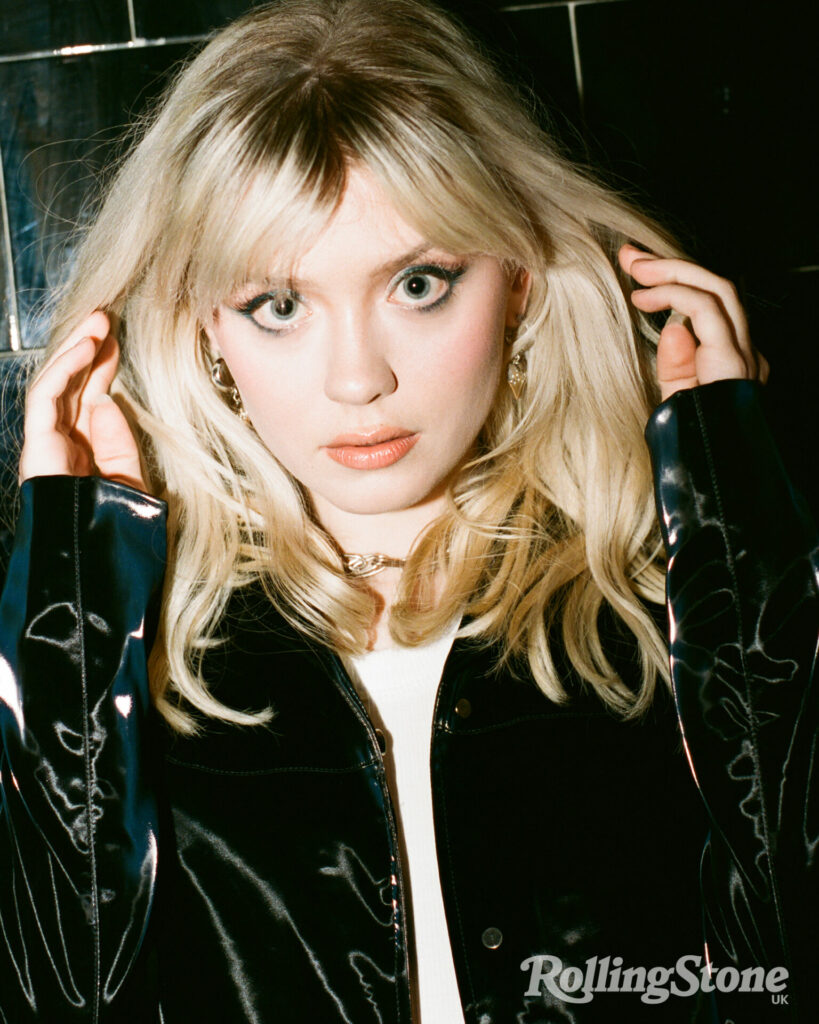
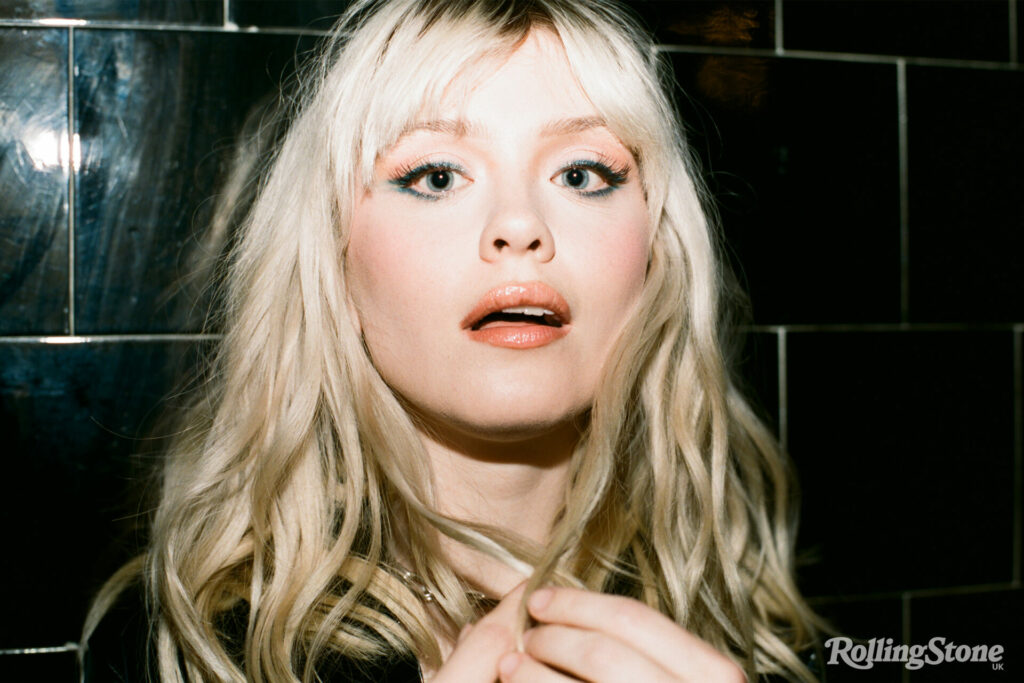
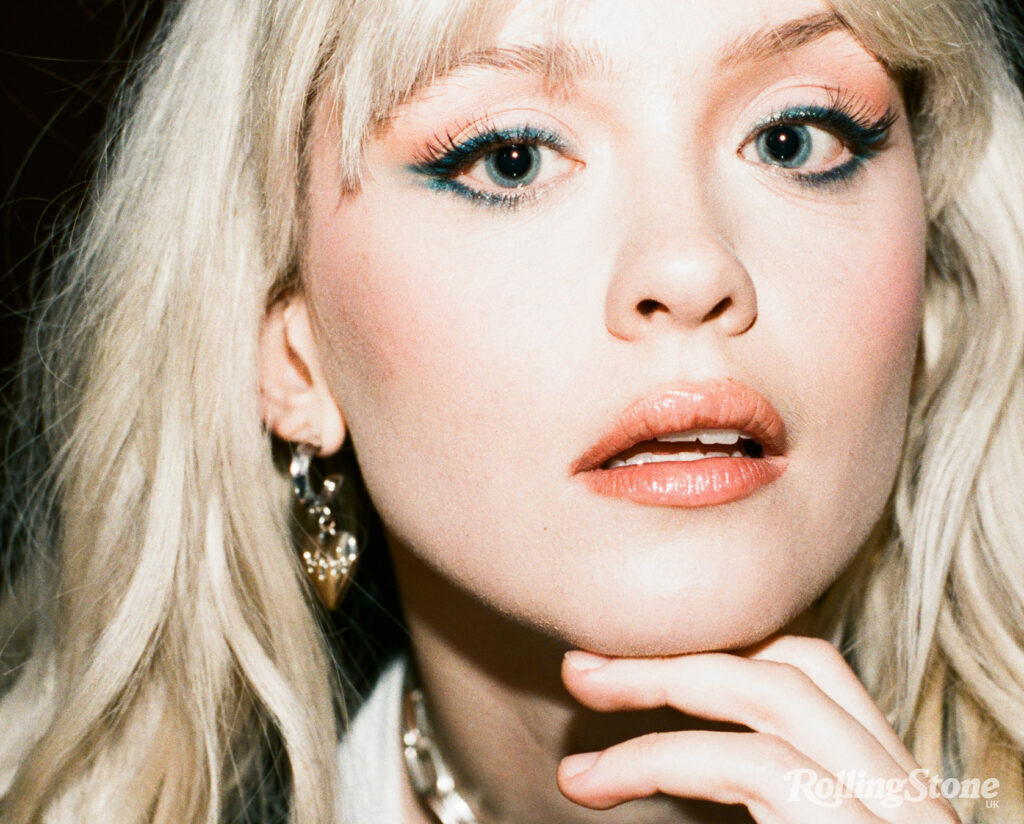

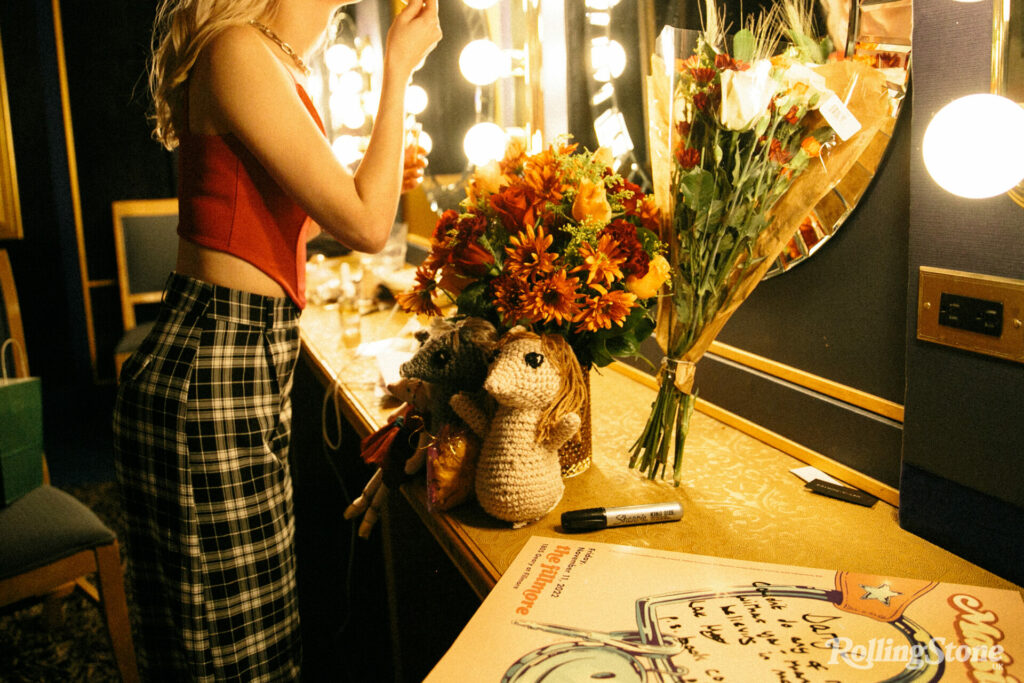
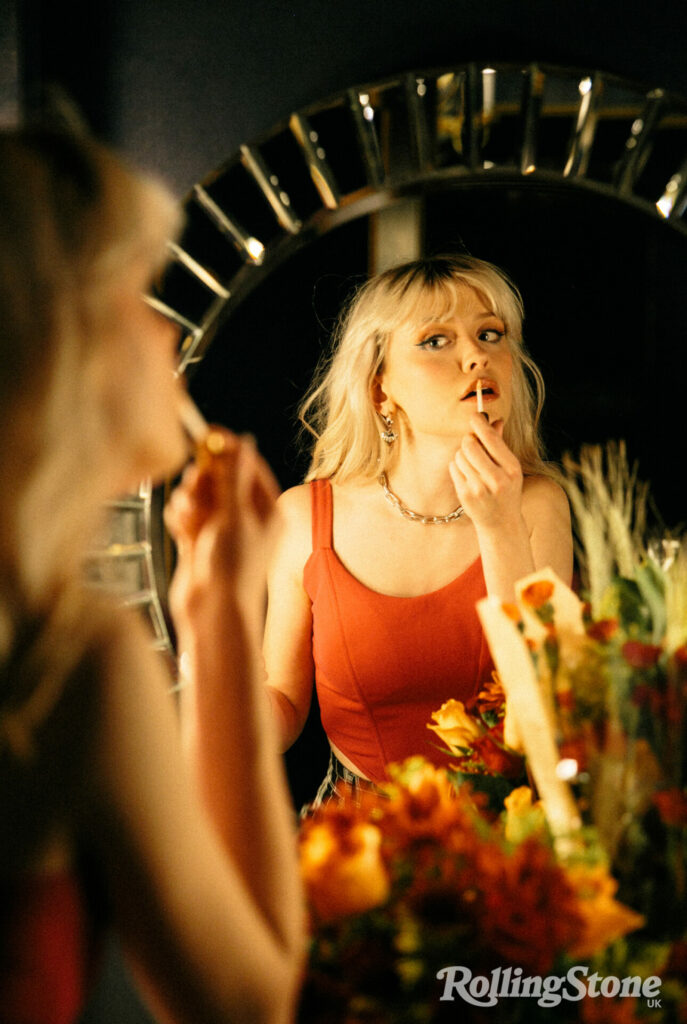
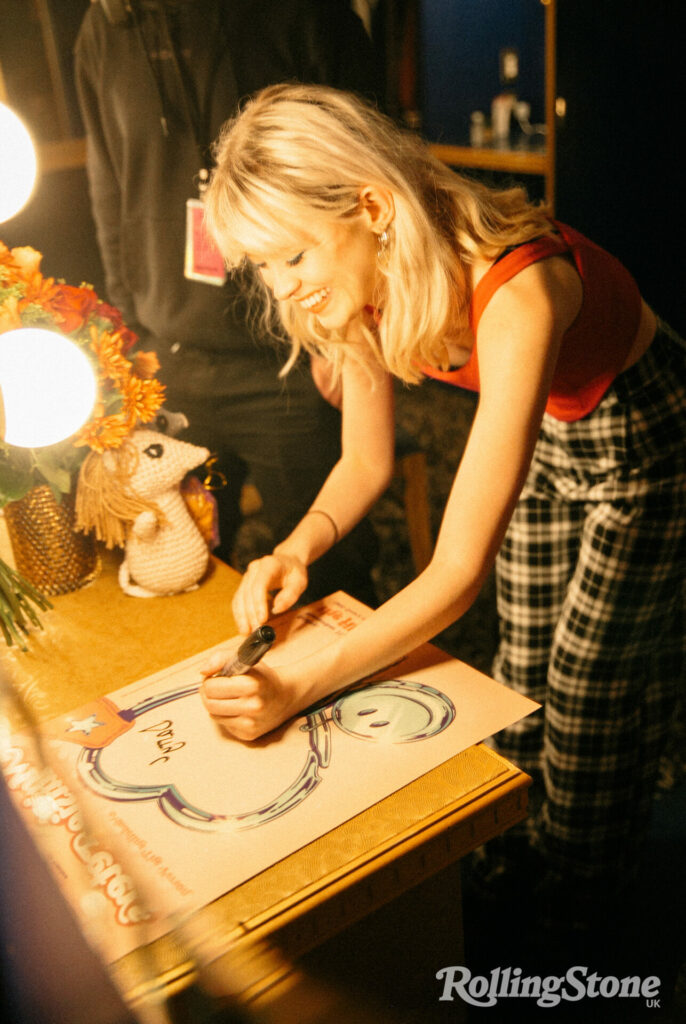
At 22, Maisie Peters already seems to understand this predicament.
“With all my female friends now, when we’re talking about guys, it’s like, ‘Who are they actually? And who have we made them? And is there a crossover at all?’” Peters tells me, sitting alert at a table in an Art Deco upstairs room at The Wiltern theatre in Los Angeles. The tiny singer with bleached-blonde hair and celebrity limbs switches between poised and frenzied. She listens diplomatically to questions and after a politician’s pause, she can speak so fast it’s like ‘Flight of the Bumblebee’ plays when she opens her mouth. Whether there’s a crossover between truth and illusion or not, the singer says, “I think that, for me — and I try to show it with my music — whatever is real to you is real.”
Peters is building on what her idol — and now Maisie Peters fan — Taylor Swift spent 15 years establishing: that women can write pop songs about the insecure, the needy and, most pertinently, the hallucinatory space in which reality and fantasy meet. “I’m obsessed with the almost,” Peters says. “What you almost say, or almost do, or you almost had or almost lost. All of those moments, I think, make for interesting music and also feel very female as well, that whole experience.” She returns to something I previously mentioned about the impossibility of ever knowing if romantic interests obsess about you in the same way as you do them. “You said the word obsessed earlier and I realised when I was looking through my next album, ‘obsessed’ would be the biggest word on my word map. I think women are pretty private with their obsessions, apart from to other women maybe, and sometimes it’s funny because people are like, ‘Oh, you’re so obsessed.’ And you’re like, ‘You have no idea.’ This is the surface of the obsession.”

Later, when Peters plays her headline set at the venue, she will tell the room who she makes music for: the girls who got ghosted and still wish them ‘happy birthday’; the girls who bought gifts for their crush’s mother; the girls who got ditched by someone who was not their boyfriend. The list changes each night, depending on what comes to her in the hours beforehand. “I just think there’s such validity in those relationships, and sometimes they mean more to you than the ones you can define because you never quite had it, or you could never quite explain it,” she says.
In Peters’ off-beat but mainstream pop songs, she addresses these imaginary and almost-boyfriends. On breakthrough track ‘Psycho’, she laments that “You kept me as your favourite secret / And I thought we just took it slow” and, after listing a man’s many failings on Lily Allen-inspired ‘Boy’, she quips, “You should take this personally”. In the sugary, cinematic chorus of ‘Brooklyn’, she even speaks to her sister’s future hypothetical boyfriend.
Even when almost-relationships are over, the subject of her desire remains the subject of her songs. It’s what she calls the paradox of the artist, too engaged in explaining this to remember to eat her untouched salad: “Do we care because we care and we write music about it? Or do we care because we keep writing music about it so we keep remembering it, so we keep caring? I think about that all the time, the cycle of it.”

Maisie Peters has always been this way, indulging in the fictional world. When she was younger, she devoured books, “ate them, don’t even remember half of them”. She re-read full series: Harry Potter, Philip Pullman’s His Dark Materials and her greatest romantic literary addiction, Twilight. Once she discovered singer-songwriters like Sara Bareilles and Lily Allen, songwriting took hold. “I used to literally come home from school and write three songs a day at my desk, about nothing that was going on in my life. I would just pretend that I had all sorts of things going on,” she recalls. By the time she was 13, she had hundreds of songs saved on her laptop, her passion for fantasy stories translating directly over to her songwriting. “I write songs like someone would write a really tiny book. I think it’s the same thing. It’s building this world, painting it and making it exciting and interesting, and you fully exist in it for the amount of hours you write it,” she says.
Now that she’s supported Ed Sheeran — she’s signed to his label Gingerbread Man Records — on tour, headlined shows globally and her debut album You Signed Up for This hit the UK albums chart at number 2, she thinks a lot about her responsibility as an artist and a young woman in the public eye. When she released her song ‘Worst of You’ in 2018, she read YouTube comments on the video accusing her of romanticising a toxic relationship and promoting it to her young female fanbase. “I was only 18 at the time as well, I remember thinking, ‘I don’t know that it’s a woman’s responsibility to make songs that are only advertising the right and true way to have a relationship — also I don’t know that [way] because I’m 18,” she says. “I don’t know how much men get told to do that. So, I don’t know why it feels like an important thing you’re asking me to do.” Peters has since observed this in responses to other young women’s work too, highlighting girl group Little Mix as an example.
Music aside, Peters feels responsible for plenty of things, as her conscientious nature would suggest. She presents as a born natural for a public-facing career, the sort of affable head girl or valedictorian who was somehow friends with everyone at school. Composed, with her hands in her lap, she says, “You can be a fangirl — and you can still occupy these spaces — and you can still be a serious musician. You can do both. You can be enthusiastic, and you can also be taken seriously. I want to be a good representation of all those things.” What does being a role model mean to her, I ask. “People will say, ‘Are you aware that you’re an example to other kids or other female songwriters?’ I’ve met enough girls outside venues and seen enough tweets and comments on YouTube videos to know that I am to an extent. I would never want to disappoint anybody who felt like that about me. I would never want them to feel let down by anything I did or said. And I want to be the person that they believe me to be and want me to be.”

It’s a few hours later when I realise she expressed that she doesn’t want to be a fantasy to those obsessed with her.
While making her upcoming album The Good Witch, Peters felt powerful. Some of it was written over the past year, firstly in Stockholm — an already magical place to her — with two other women (“we became almost like a coven”), and later in the forests in Suffolk. She cites destruction, femininity and benevolence as its themes. “My universe, in this album at least, is something for me to destroy and to build up again how I want to,” she says.
The first single, ‘Body Better’, is about a recent time she compared her body to another girl’s, deeming it hotter, categorically better. It was an ugly thought, she says, something she’s not proud of for thinking but assumes it will be relatable. She predicts it will be hard to talk about this song when she has to promote it and when fans approach her to ask about it. “I know I’m going to get people who think it’s wrong or bizarre of me to say. I’m well aware I have a lot of privilege, I’m a [UK] size 4 or 6 and white and blonde,” she says. “Equally, it was something that was true to me. I hope that by putting it into the world it is only a force for good.”

The support of the few women who have heard The Good Witch and loved it encourages her. In the weeks spent finalising this album, she’s been co-ruminating and testing ideas out with her female housemate who is increasingly invested in her favourite tracks making it onto the album. “When I tell her so-and-so on my team doesn’t like it, she’s like ‘Why? I don’t agree!’” Peters laughs.
It’s while relaying stories like this that she decides she has a final answer about who a Maisie Peters fan is. “If I were to summarise it, I’d say my music is for the quietly unhinged,” she says. “That’s who I make music for if I was gonna choose a blanket statement. The quietly unhinged… And maybe also the loudly, too — there’s no shame for being loudly unhinged either. I just think that there’s a whole subculture in the world of the quietly unhinged.” And then she goes downstairs to address her many quietly deranged girls in love.
The Good Witch will be out on 16 June
